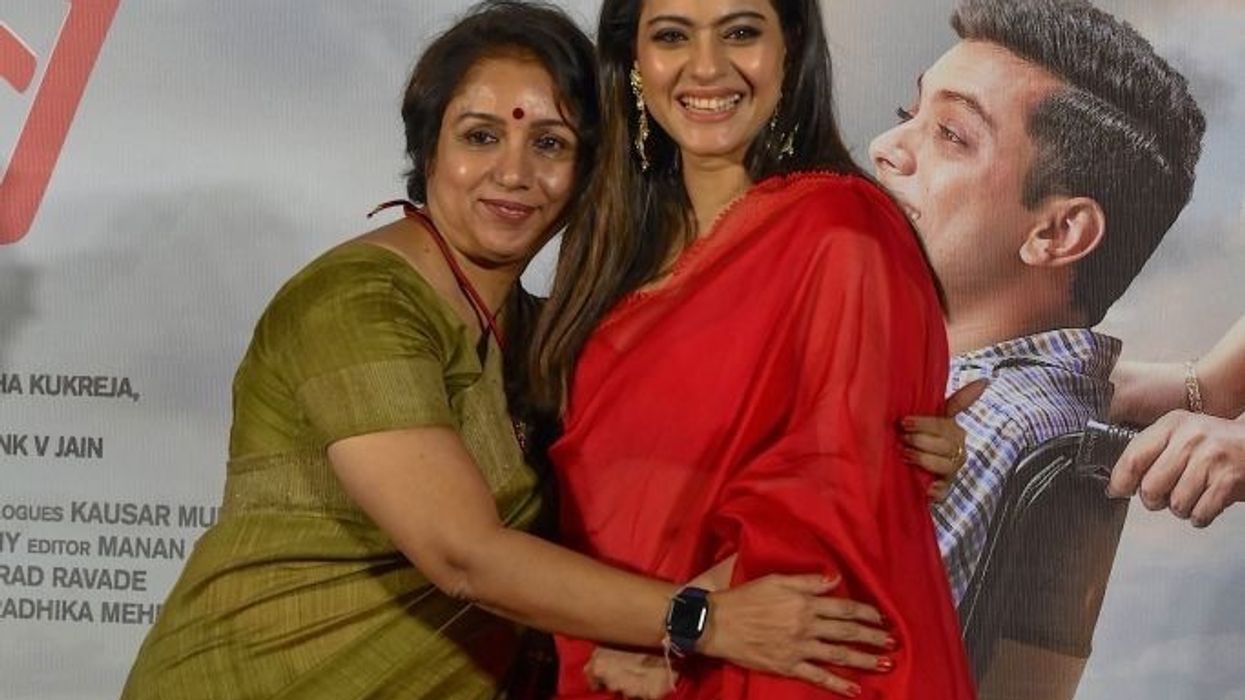Revathy says while she is naturally drawn to stories about women, her work as an actor and a filmmaker always has a common factor: emotions.
In all her feature-length directorial movies such as the 2002 National Award-winning “Mitr” and “Phir Milenge” (2004), she has presented women who realise their strength as they navigate an emotionally rich narrative.
Her latest release “Salaam Venky” follows a mother, played by Kajol, who fights for her dying son's (Vishal Jethwa) right to dignity.
"I just connect with women characters and roles because I know I can get their deepest emotions. It is natural that I get drawn to such characters. Human stories, emotions, and relationships interest me. All my films as a director and an actor have had these.
"Somewhere I felt I have lagged behind in the way films are being made or stories are being told. But then whatever it is, human emotion is the same no matter how modern we become. That is my strength," Revathy, who returned to helming a full-fledged Hindi film after an 18-year hiatus, told PTI in an interview here.
Based on the book titled "The Last Hurrah", "Salaam Venky" is inspired by the true story of the young chess player Kolavennu Venkatesh, who had Duchenne muscular dystrophy (DMD). He died in 2004.
The DMD is a genetic disorder which causes skeletal and heart muscle weakness that gets worse with time. Venkatesh's death sparked a debate about euthanasia, commonly known as mercy killing, in India.
The 56-year-old director, who had read the book back in 2007, said she felt the story needed to be told for the big screen. She had even penned two-three versions of the adaptation, but things didn’t materialise then.
Revathy, however, believes she was meant to narrate this story, penned by Sameer Arora and Kausar Munir.
"The most important thing is the spirit to live life to the fullest and that is what attracted me. And that is what the story is even today. I had a different take on it. The movie has certain fictional elements. Overall, the soul of the film is the same but the structure was different,” she added.
Kajol was the first choice to play the role of Sujata, said the director. Revathy lent her voice to the actor in the 1997 Tamil film "Minsara Kanavu" (“Sapnay” in Hindi).
"I felt this character needed somebody who is a mother," she said.
Aamir Khan features in a cameo appearance and Revathy said she is grateful to the Bollywood superstar for trusting her vision.
"He was convinced by the story. He trusted me as a director,” the filmmaker said.
She said there is no set process that she follows with her actors to "induce" emotions.
“Sometimes we do a lot of rehearsals and sometimes we just go for one take. When things do not work out, then we go more but not again too much because I feel actors are exhausted. So, it all depends on film-to-film and scene-to-scene,” she added.
As a filmmaker, Revathy said it is a conscious decision to not feature in the films she directs. The actor, who predominantly acts in Tamil and Malayalam movies, has not starred in any of her directorial barring "Phir Milenge".
“I will never share the responsibility of acting when I am directing because it is difficult. Those are important roles to play. I love both. The only difference is the director starts the journey from the seed of the thought an actor has a slightly easier journey,” she said.
“Salaam Venky” also stars Rahul Bose, Rajeev Khandelwal, Prakash Raj, Kamal Sadanah, and Aahana Kumra in pivotal roles.
The film, which hit the screens last week, is presented by Connekkt Media and produced by Suraj Singh, Shraddha Agrawal, and Varsha Kukreja.
(PTI)




